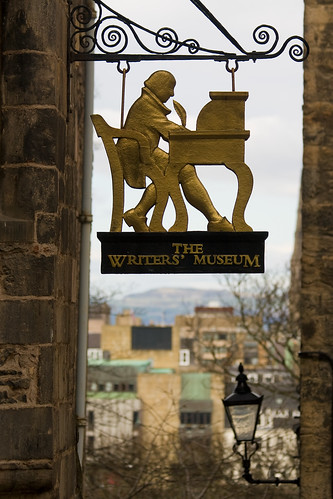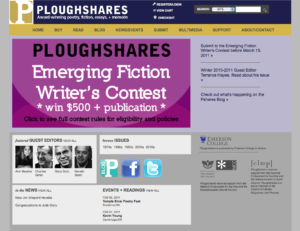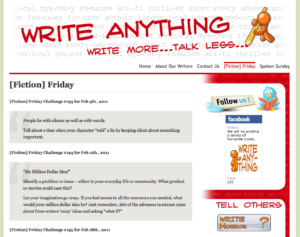Wondering when you’ll reap the fame and fortune that come with your dream of being a writer? Well, probably never. If:
1. You don’t read

At least, not the right things. You read all the books on writing and polishing and publishing, and all the books that literary critics are praising, but nothing of any real value. You don’t read books that light a fire under you, you don’t read in your genre, you don’t read non-fiction for fun and inspiration. You don’t have an Audible membership or a library card and you couldn’t name a book that has meant anything to you since you turned 20.
If you were learning to be an accountant you’d study accounting law. If you were studying to be a doctor you would read medical books. Stephen King, in On Writing calls it the Great Commandment: Reada lot, write a lot.
“Read, read, read, Read everything — trash, classics, good and bad, and see how they do it.”
-William Faulkner.
2. You’re too busy to write
You’re not independently wealthy: you’ve got a job, a family, commitments, a social life, a pressing engagement with the cast of Glee! You can’t possibly squeeze any time out of your day to write.
Jon Scalzi, current president of the Science Fiction Writers of America puts it bluntly and truthfully:
So: Do you want to write or don’t you? If your answer is “yes, but,” then here’s a small editing tip: what you’re doing is using six letters and two words to say “no.” And that’s fine. Just don’t kid yourself as to what “yes, but” means.
You can make time to write, but something else is probably going to have to give. It might be sleep, it might be ‘watching Ellen in the afternoon’, it might be having lunch with the same people every day in the dreary work cafeteria. It might be ‘feeling bad about yourself because you’re not getting any writing done and eating ice cream instead’.
But, chances are, you can make time to write.
3. You have no original ideas
Every time you sit down to write you are paralyzed by the overwhelming feeling that everything has been said before. Well, you know what? You’re right. But it hasn’t been said by you, in this time and place, at your age, and in your circumstances. Agent Donald Maas talks a lot in The Breakout Novelist about the difference between ‘original’ and ‘unique’. You don’t have to be original, but you do have to be ‘unique’.
I once interviewed Daniel Pinkwater and he said the same thing: only you can speak in your voice, and if you write for a while you’ll discover what that voice is.
I love that what my readers need, they can only get from me. It’s riskier, but much more ego-gratifying
-Daniel Pinkwater, 2003 interview
He also said,
Ideas are everywhere. I have 60 ideas a day. So do you. So does everybody.
-Daniel Pinkwater, 2003 interview
The trick is paying attention, taking those ideas and developing them into the story only you can tell.
4. You have no qualifications for this. You don’t know what you’re doing
No writer does. Every artist is engaged in creating something unique and new. Experienced writers say this all the time: I don’t know what I’m doing until I’ve done it. Here’s a little evidence:
The only way to write is to write… Stupid b*****d job.
-Russell T. Davies, Doctor Who: The Writer’s Tale
Very few writers know what they are doing until they have done it.
-Anne Lamott, Bird by Bird: Some Instructions on Writing and Life
You can’t completely understand what good writers do until you try it yourself…Write from the very beginning, then, and keep on writing…The next story will be better, and the next one after that still better, and eventually—
-Isaac Asimov, Gold
5. Your Writing Sucks
When you do make the time to write, it’s hard. The words do not come dripping off your pen easily; all the elements in your story don’t come out in the right order; your characters are flat and uninteresting and they speak in cliches; you want to give up.
And that is what Anne Lammot calls your ‘shitty first draft’. It has to be got through in order to get to the second draft, the third, and the polished end result. If you are too scared to suck, too scared to fail then you will never be a writer, because all writing involves putting some truly terrible prose on the page — and excising it later or, like William Faulkner, throw it out entirely and start again,
Write. If it’s good, you’ll find out. If it’s not, throw it out the window.
-William Faulkner
Sure, it’s scary but even the great and prolific Isaac Asimov says, of the writer’s daily task:
We sit there alone, pounding out words, with out hearts pounding in time. Each sentence brings with it the sickening sensation of not being right.
-Isaac Asimov, Gold
Can you allow your first drafts to be less than perfect?
6. You’re Too Nice
In real life it’s nice to be nice: people like you, you offend nobody and your mother is proud of you.
In literature, being nice doesn’t pay. It’s boring if nothing happens, if no-one gets upset, if no-one is threatened, insulted, shamed, murdered, even. Your writing can be your playground. Be nice in real life if you must but, in your writing,
Embrace your inner sadist.
-Donald Maass, The Breakout Novelist
I’d love to hear which of these touched a nerve with you. Let me know in the comments which part of your writing life you’re struggling with the most at the moment? Has it changed over time?
If you’re feeling inspired to write now, why not check out some of the StoryADay Writing Prompts? You might want to start with some Flash Fiction, to warm up.

![[Markets For Writers] Ploughshares Emerging Fiction Writers Contest](https://storyaday.org/wp-content/uploads/2011/02/Screen-shot-2011-02-06-at-1.18.13-PM.png)

![[Markets for Writers] Fiction Fridays at Write Anything](https://storyaday.org/wp-content/uploads/2011/02/Screen-shot-2011-02-08-at-12.23.24-PM.png)
